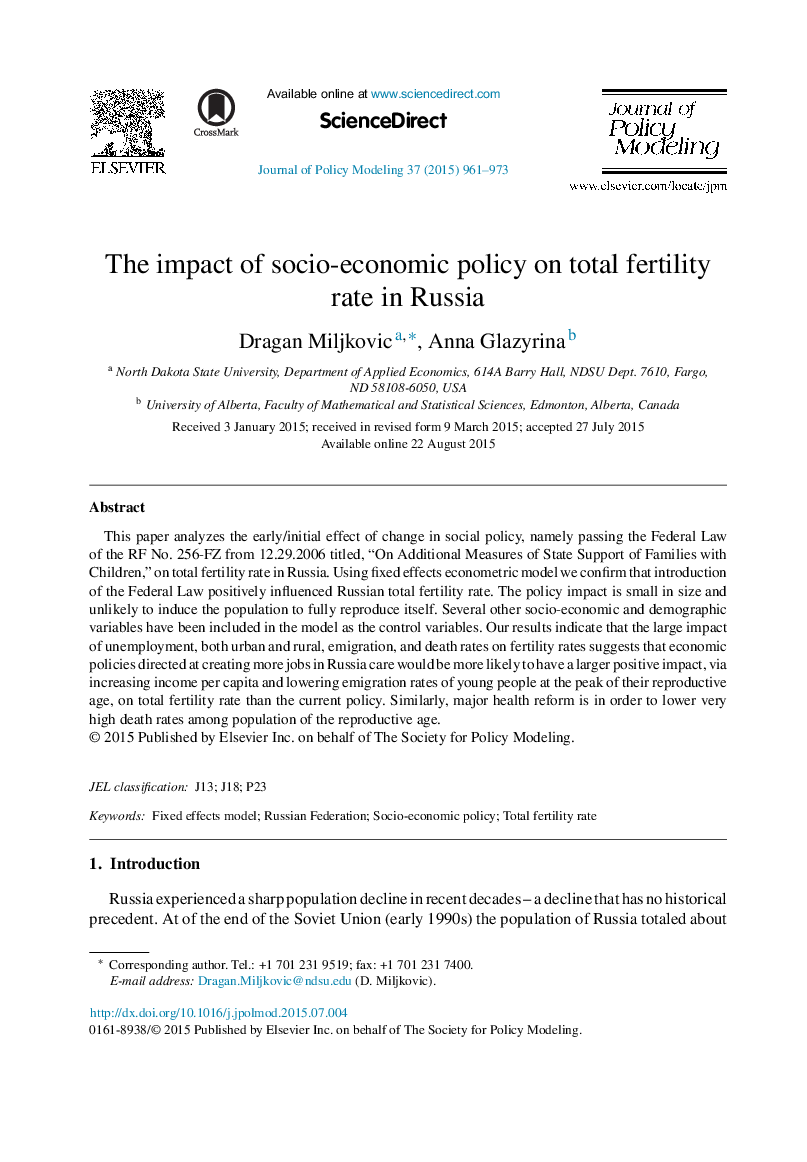| Article ID | Journal | Published Year | Pages | File Type |
|---|---|---|---|---|
| 10479319 | Journal of Policy Modeling | 2015 | 13 Pages |
Abstract
This paper analyzes the early/initial effect of change in social policy, namely passing the Federal Law of the RF No. 256-FZ from 12.29.2006 titled, “On Additional Measures of State Support of Families with Children,” on total fertility rate in Russia. Using fixed effects econometric model we confirm that introduction of the Federal Law positively influenced Russian total fertility rate. The policy impact is small in size and unlikely to induce the population to fully reproduce itself. Several other socio-economic and demographic variables have been included in the model as the control variables. Our results indicate that the large impact of unemployment, both urban and rural, emigration, and death rates on fertility rates suggests that economic policies directed at creating more jobs in Russia care would be more likely to have a larger positive impact, via increasing income per capita and lowering emigration rates of young people at the peak of their reproductive age, on total fertility rate than the current policy. Similarly, major health reform is in order to lower very high death rates among population of the reproductive age.
Related Topics
Social Sciences and Humanities
Economics, Econometrics and Finance
Economics and Econometrics
Authors
Dragan Miljkovic, Anna Glazyrina,
